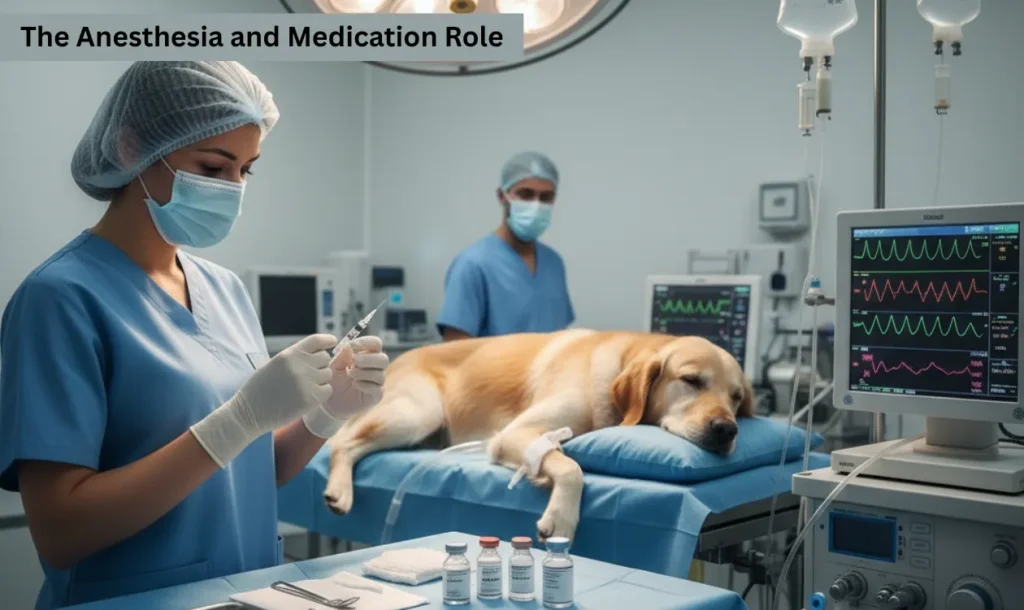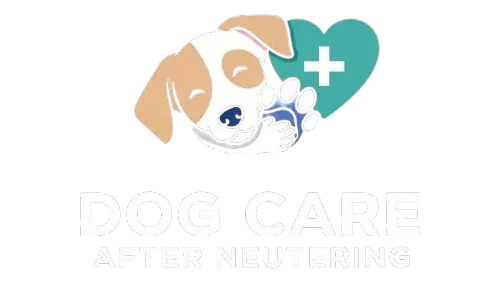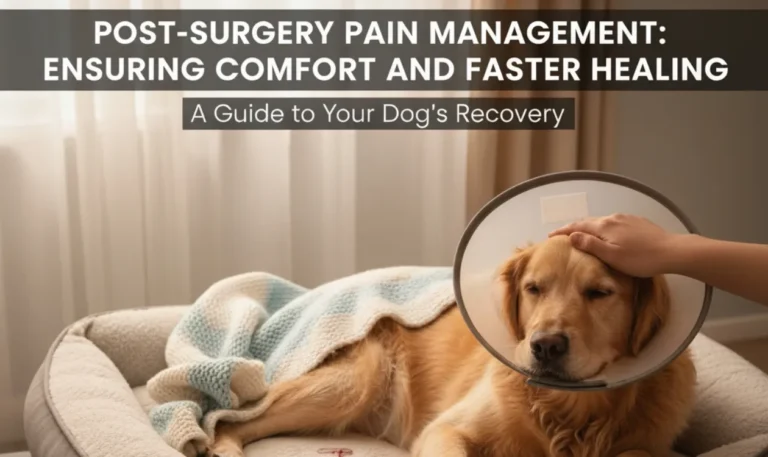Dog Sleeping Patterns After Surgery
Learn how to manage your dog sleeping patterns after surgery, from pain relief to creating a calm space for healthy, comfortable post-surgery rest.
It is but natural that your dog sleeps a lot more than normal after surgery. Sedation and pain killers may result in long term sleepiness and lack of activity. This is natural sleep and would be a part and parcel of the healing process providing your dog with time to rest. This profound sleep must not be confused with laziness or a lack of strength on the part of the owners that is a good omen of recovery.
Nonetheless, a dog responds in a different way to surgery. Others can sleep in peace many hours, and others can wake up many times a day, and still feel listless. It is just important to note the comfort or discomfort of your pet. When there is something wrong with how your dog sleeps or maybe it is too restless, it is always safe to call your vet.
The Anesthesia and Medication Role

anaesthesia quickens up the nervous system of your dog that leaves them weak and feeling groggy after the operation. Depending on dosage and your dogs size this calming effect may take between a few hours and a whole day. This sleepy behaviour can also be prolonged with the help of painkillers prescribed afterwards and will allow keeping your pet calm and pain free.
After the drug expires, the sleep cycle of your dog will slowly regain its usual state. They may still appear to be sleepy and that is not something to be alarmed about in a few days. Ensure that there is a peaceful environment and distractions are minimal. The more peaceful the surrounding, the quicker they adapt to post anaesthesia recovery.
Having a Cozy Sleeping Place
It is necessary to make your dog a place where he or she can comfortably and safely sleep. Select a soft and clean bed that is located in a peaceful and cozy place in your house. Avoid surfaces that are hard so as not to put pressure on stitches or sore areas. A bed that is comfortable promotes healing and minimization of stress.
Store the bed of your dog in a place that does not have heavy traffic where the dog will be startled by the noise and movement. Blankets may be utilized to add more cushioning as well as warmth. Ensure that the area is clear of hazards or stairs so as to avoid movement that is not necessary. Peaceful rest is encouraged both by comfort and safety.
Monitoring Nighttime Restlessness
A lot of dogs are not able to sleep after surgery because of pain, discomfort or confusion. Squealing, snorting or being in constant motion in sleep are typical symptoms of distress. Ensure that pain relief drugs are taken as advised prior to bedtime. They can also be helped to relax by giving them some gentle assurance and a serene environment.
When the restlessness persists through a couple of nights, then it may mean that the medication should be changed. Do not punish or rebuke your dog on waking up this is not voluntary. Rather, console them with a soft voice or caressing. This is because you must always talk to your veterinarian about persistent night pain.
Keeping Sleep Routines Consistent
It is better to keep a regular routine to make your dog recover balance following surgery. Take them out to feed and walk at regular intervals to help them keep a regular day routine. Excessive alteration of routine may cause anxiety, which interferes with their capacity of taking a rest. Predictability brings some relief in the process of recovery.
Restrict the number of people visiting your dog and the loud noises around your dog. Turn on minimal lights and have the same time of bed at night. In the course of time, their internal clock will be re-initiated, and sleep will re-establish normalcy. Monotony and consistency are the keys to curing a dog successfully.
Recognizing Abnormal Sleep Signs
Although additional sleep is not a problem, excessive sleepiness that continues past several days would be an indicator of an issue. In case your dog cannot wake up or does not want to eat, or seems to be lost; call your vet. These signs can be taken as a response to a drug or an internal infection.
In addition, look at a lot of panting, trembling, or whining during rest, this can indicate pain. It is a good idea to record daily the sleep and behavior of your dog, which will allow you to monitor progress correctly. When anomalies are detected at an early stage, it will be easy to be treated and able to recover safely. A pet owner should always believe their instincts.
Being in Favor of Healthy Hydration and Nutrition

Proper hydration and proper nutrition have a direct influence on the amount of energy your dog has and the level of sleep. Dehydration may cause them to be restless and poor nutrition retards healing. Provide small and frequent meals and large amounts of clean water to aid body and rest. Heavy or rich foods are to be avoided as they can upset their stomach.
When your dog does not eat very well, boil some chicken and rice and give it to your dog to eat temporarily. Proper nutrition helps contain energy levels and one does not experience too much fatigue or weakness. Vet can prescribe supplements in case of slow recovery. Good food ensures that the body of your dog is well-developed to undergo a good sleep.
Minimising Pain and Discomfort at Rest.
The management of pain is important in the recovery of your dog in the aftermath of operation. An ill dog will change positions continuously, or will not lie down. Take every dose accurately and do not miss them. The management of pain does not only guarantee comfort but also avoidance of stress related problems.
Orthopedic or memory foam bed can also be used to alleviate the pressure points. Do not move or change positions of your dog too often, but rather allow him/her to move freely. Soreness can also be relieved by the use of warm compresses in the area of the surgery (only with the consent of your vet). Sleeping without pain will be the key to recovery.
Helping Your Dog Adjust Emotionally
Surgery may have psychological impact on your dog besides curing the illness. Their sleep can be interrupted by anxiety or disorientation, in particular, when the child wakes up sore or in a new routine. Be with them to comfort them with soft words and tender love. You are the one who makes them regain their confidence.
Do not over stimulate them but provide them with silent companionship rather than play. Emotional cues are sensitive to dogs hence remaining calm will assist in making them relax as well. Emotional balance will be followed after some time when the pain passes and energy is restored. Trust and easier healing is a result of constant comfort.
When to Contact the Veterinarian
You should be constantly conscious of the way your dog rests and the way he acts when he is in recovery. In case of constant restlessness, crying, too much tiredness or indications of infection on the surgical site, then call your vet immediately. These may be pointer of complications, which need immediate medical care.
Do not attempt to make any alterations to medication or treatment yourself. The professional assessment is a guarantee of the proper treatment and avoidance of disappointments. Dont miss any follow-up appointments so that the vet will be able to determine the progress of your dog. Early care means that your pet will be cured and will be good to go.
FAQs: Dog Sleeping Patterns After Surgery
Final Thoughts
One of the most significant parts of caring after surgery is to take care of your dog sleeping. Rest enables the body to recuperate, gain strength, and decrease stress in the operation. It is thanks to you that your furry friend does not feel unsafe during such a sensitive period, as you help him or her feel safe and comfortable in a comfortable environment and routine.
Always bear in mind there is no dog that heals the same way. Be patient, take the recommendations of your vet and watch out on abnormal behavior or sleeping disturbances. Your dog will soon be back to a happy, energetic person with love, attention and proper post-surgery care; your dog will be ready to live in your life once again.





